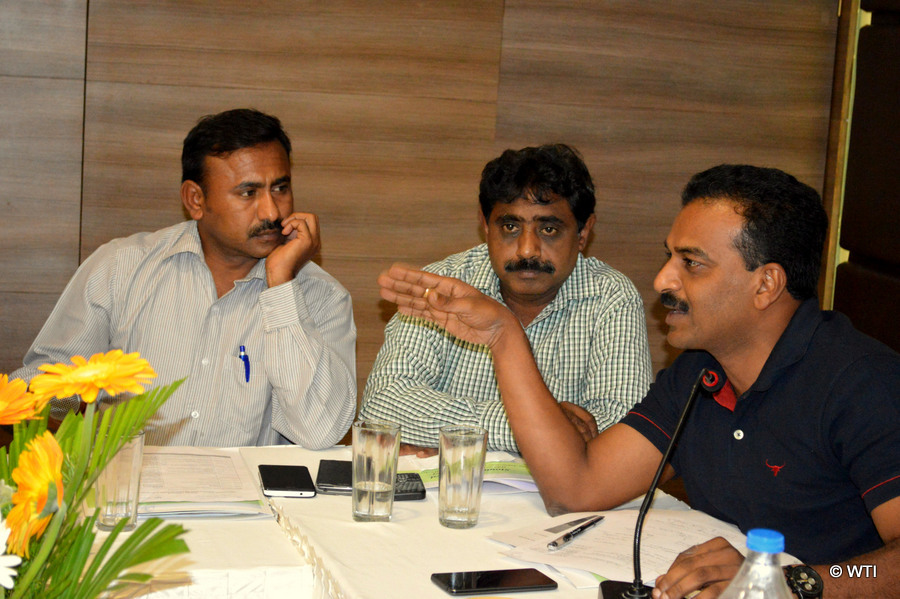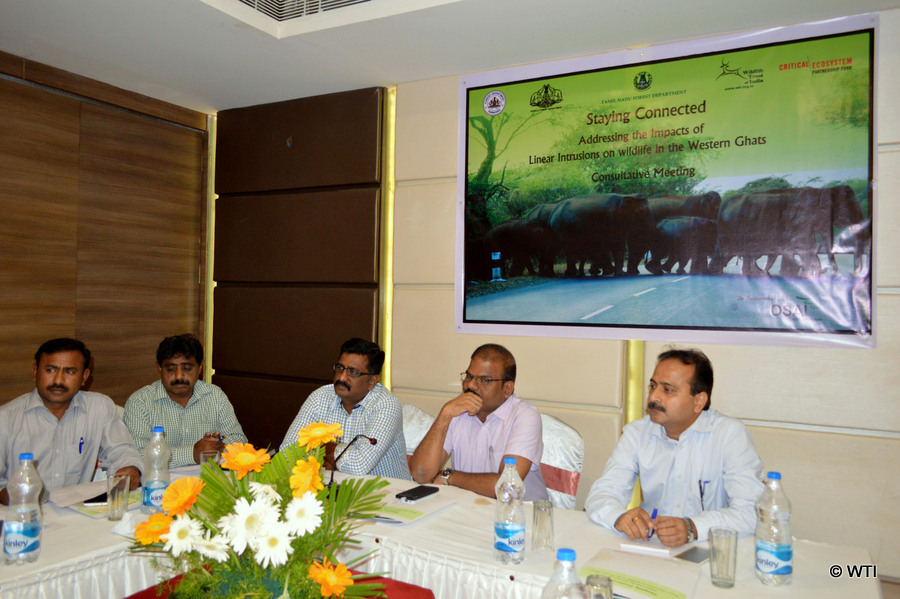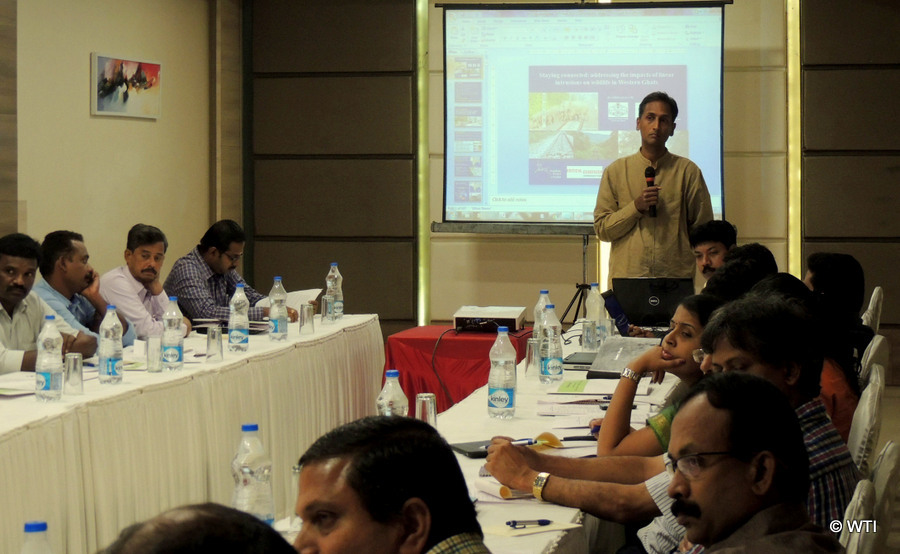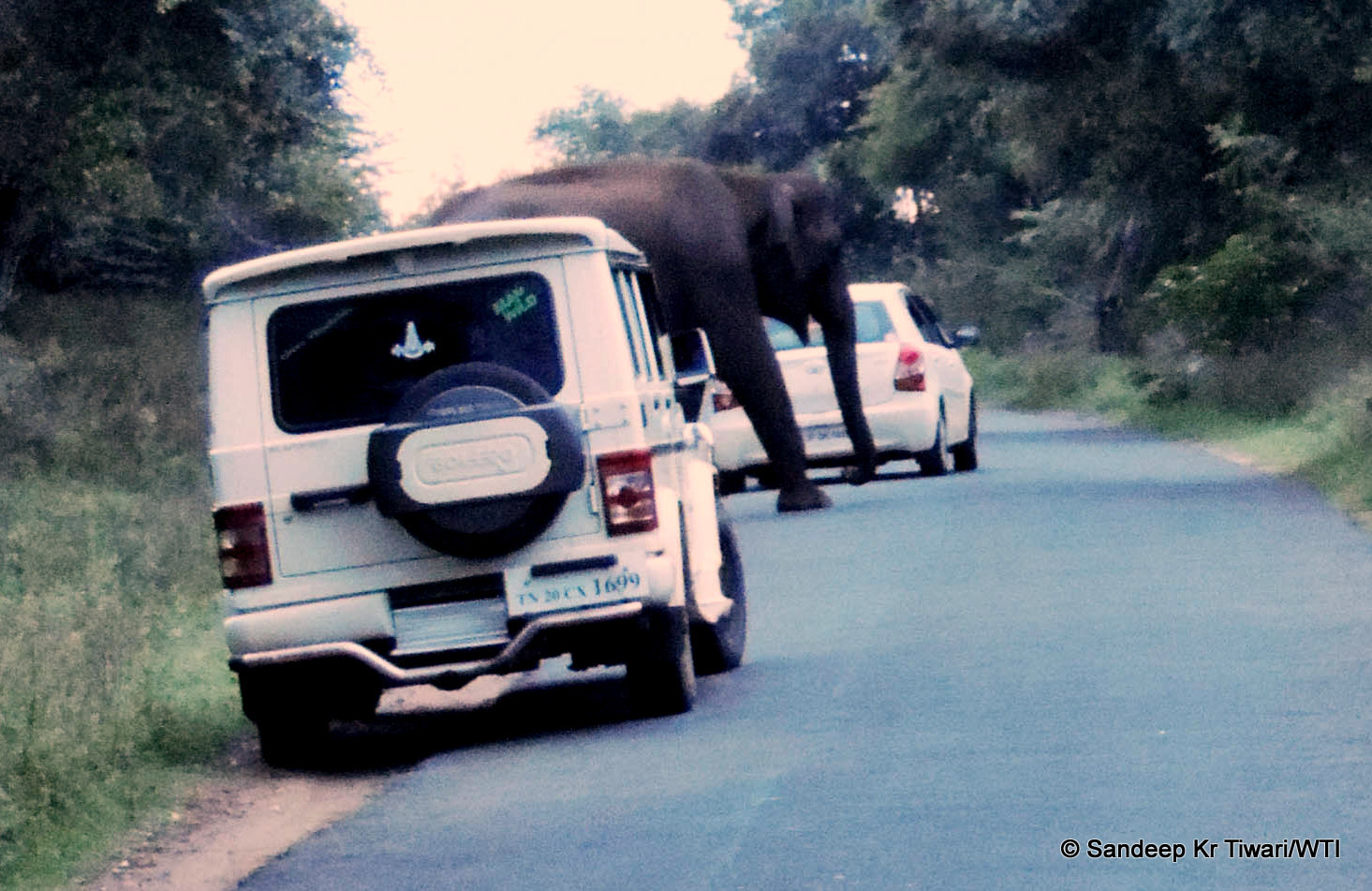WTI holds Workshop on Impact of Linear Intrusions on Wildlife and the Way Forward
Coimbatore, September 29, 2015: Wildlife Trust of India (WTI), in partnership with OSAI, organised a one day consultative meeting on the impact of linear intrusions on wildlife in Western Ghats. The meeting was held in Coimbatore and attended by officials from Kerala Forest Department, Tamil Nadu Forest Department, Tamil Nadu Electricity Board, Indian Railways, National Highways, representatives of NGOs, Educational institutes, conservationists and researchers. A total of about 30 people participated in the workshop.
WTI, with financial support from Critical Ecosystem Partnership Fund (CEPF), undertook a project to look at the impact of linear intrusions on wildlife in select sites of Nilgiri- Mysore landscape and Western Ghats.. The project emphasizes the relevance of strengthening the discussions through providing supportive evidences and information, in order to move towards a sound policy and legislation for avoiding, reducing and mitigating the negative impacts of linear infrastructure on wildlife in Western Ghats, in particular, and at a national level.
One of the major negative impacts of linear infrastructure on wildlife like elephants is the death of approximately 45-50 elephants due to electrocution every year, and more than 250 elephants due to train hits since 1987 alone.
Pramod Krishnan, Conservator of Forests, Northern Wildlife Circle, Palakkad, Kerala said, ‘Unfortunately, in terms of GDP calculation, the ecological value of forest is not considered but if you look at the services being rendered by forest, this is far greater than it is actually estimated. A responsible management strategy should be evolved following the principals of avoidance, offset, mitigation and compensation.
The consultative meeting brought people from various sectors — railways, roads, power and canals, forest department, conservation organizations and researchers to discuss the way forward towards developing a mitigation plan.
The meeting also aimed to contribute towards strengthening the policy guidelines for avoiding, reducing and mitigating the negative impacts of linear infrastructure on wildlife.
During the course of the meeting, K Rajkumar, DFO and Deputy Director, Sathyamanagalam TR, said, “For a park manager, mortality of animals due to electrocution, road/rail hit is a major problem. Various developmental agencies, forest department and conservation organisations have to plan together so that the impact of these linear intrusions on wildlife could be minimized.” He added that this workshop is a good opportunity for all stakeholders to work towards minimizing such adverse impacts.
Dr TR Shankar Raman, Scientist, Nature Conservation Foundation (NCF), added, “The solution to this problem could be found if we work with all concerned sectors. There are global solutions and this workshop could be a platform to discuss problems and successful mitigation plans.”
Developmental agencies that participated in this meeting agreed that they have been working on ways to mitigate unfortunate incidents that directly affect wildlife. Mr S Raghu, Superintendent Engineer, Generation Circle, Kundah Tamil Nadu Electricity Board said, “In recent years, while creating new hydro projects, TNEB is trying to have the transmission lines, canals and pipes under ground so the impact on wildlife and people is minimum. This is a collective responsibility on all of us to protect nature and at the same time optimize production for national growth.”













